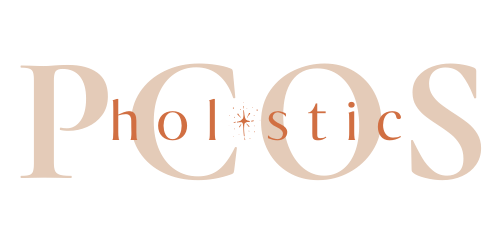PCOS Types 101: Inflammatory PCOS
Inflammation drives PCOS symptoms in three main ways:
Inflammation suppresses ovulation, contributing to irregular cycles and imbalanced hormones;
Inflammation disrupts the hormone receptors themselves, and;
Inflammation also tells both the adrenal (stress) glands and your ovaries to make more androgens (the “male” hormones that cause most PCOS symptoms)
As the Inflammatory Type, you may experience:
Skin conditions such as acne, rosacea or skin rashes
Unexplained fatigue
Brain fog
Joint pain
Headaches
Gut or digestive issues such as IBS or SIBO
Weight gain
Sensitivities to certain foods like dairy or gluten
PS - Not sure which one is your PCOS Type? Take our 2-minute quiz before you dive in:
In the long run, it's important to have an understanding of how to address all of the root causes, including insulin resistance, thyroid issues, inflammation, stress, other hormonal imbalances, and gut imbalances.
This doesn't mean the other PCOS Factors like insulin or stress aren't contributing, but it's best to get a handle on reducing inflammation first.
So what should you do about it?
While your best bet is to join us in our groundbreaking, evidence-based program, the Holistic PCOS Method™ to learn how to manage the other big symptom drivers, here are 3 quick tips to start managing Inflammatory PCOS in the meantime:
Three Tips for Managing Inflammatory PCOS
1. Remove potentially-inflammatory foods from your diet for a few weeks to see how you feel.
This includes the main offenders: sugar, processed foods, trans fats, dairy, gluten, and soy. Reintroduce them one-by-one and observe any reactions you might have.
2. Add anti-inflammatory foods.
Foods such as fatty fish, olive oil, avocados, organic fruits and green veggies can also help reduce inflammation. Supplements such as probiotics, zinc, anti-androgen supplements such as saw palmetto and peony + licorice, and more can also help with inflammatory PCOS. Talk to your doctor or nutritionist before making any changes to your medication or supplement routine.
3. Support your gut health and treat any underlying gut issues such as SIBO or IBS.
Our intestines are meant to break down and absorb nutrients, but when we're living in a chronic state of inflammation (and likely eating things that don't agree with us) and our microbiomes are imbalanced, we end up with leaky gut, which goes on in a vicious cycle. Probiotics help good bacteria combat the bad bacteria, so it's a good idea for most people to eat plenty of fiber and take a high-quality probiotic and eat lots of fermented food (unless you have a histamine sensitivity).
Bonus Tip: Sign up to be the first to hear when the Holistic PCOS Method™ reopens!
Like most people with PCOS, you probably have other underlying root causes that are contributing to your symptoms. Not to mention, your root causes can change as you and your lifestyle change throughout the years! That's why it's important to take an individualized approach to treatment and learn how to combat each of these root causes.
And that’s exactly what we do inside the Holistic PCOS Method™, our leading 12-week program for people with PCOS. Sign up below to be the first to hear when we re-open enrollment!

